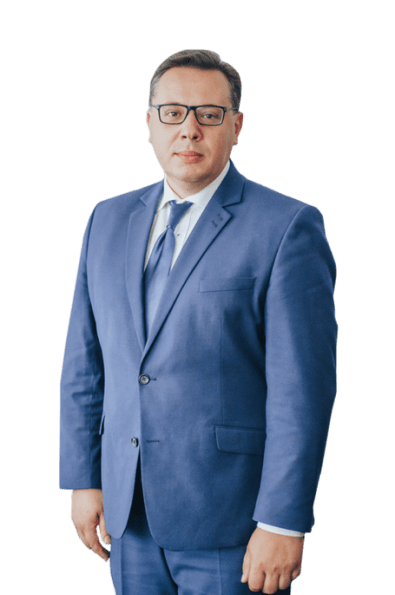Educational and scientific program «Economics»
Упродовж чотирьох років підготовки здобувачів ступеня доктора філософії в аспірантурі на засадах створення сприятливого освітнього середовища передбачається поглиблення теоретичних знань зі спеціальності, необхідних для проведення дослідження та продукування нових ідей; опанування методичних, педагогічних та професійних навичок дослідника; посилене вивчення іноземної мови.
Програма обумовлює наявність постійної підтримки та супроводу з боку наукового керівника для забезпечення дотримання плану наукової роботи та рівня якості дослідження, а також сприяння апробації отриманих результатів на підприємствах та в організаціях, презентації результатів досліджень на конференціях та інших наукових заходах, участі в науково-дослідних проєктах і розробленнях, публікації результатів дослідження у фахових виданнях. Також передбачена можливість інтеграції здобувачів ступеня доктора філософії в міжнародну академічну спільноту, зокрема, через участь у міжнародних проєктах, стажуваннях, програмах академічної мобільності.

Economics
conceptual apparatus, general laws, and trends in economic systems, motivation and behaviour of market subjects, socio-economic processes, their modelling and regulation, trends in the socio-economic development of state and society, methodology and research methodology in economic processes management and micro-, macro- and meso-levels.
1229.4 Head of Department;
2310.1 Associate Professor (Docent);
2310.2 Senior lecturer / lecturer;
Work in public administration and local government; analytical and information institutions; research and academic institutions; the business sector and etc.
1142.1 Senior official (chairman, co-chairman, president, vice president, secretary-general, secretary) of a trade union;
1142.3 Senior official of a public organization (in the field of culture, education, charity, human rights, etc.);
1210.1 Director (head) of the organization (research, design, project), training and production plant, professional educational institution (secondary vocational-technical school, vocational school, etc.);
1231 Heads of financial, accounting, economic, legal, and administrative departments and other kinds of managers (Chief Economist / Financier);
1232 Head of the training department;
1238 Project and programme managers;
1312 / 1314 Managers of small enterprises without industrial/wholesale and retail management;
2414.2 A professional with financial and economic security;
2441.2 Economists (planning, finance)
2419.2 Other specialists in finance and commerce (professional with innovative activities);
3436.1 Management assistants;
1232 Human Resources Director.
Forms of assessment: oral and written assessment, tests, defence of individual projects, essays, presentations.
Evaluation of a thesis is carried out in the form of a public defence at a specialised Academic Council.
GC2. The ability to conduct independent research at a scientific and applied level.
GC3. The ability to communicate the message within the field of knowledge and other topics, including in a foreign language (both orally and in writing).
GC4. The ability to take responsibility and work independently.
GC5. The ability to organise and process information to generate new scientific ideas.
GC6. The ability to work in an international academic environment.
GC7. The ability for abstract thinking, analysis, and synthesis, systematic scientific outlook, professional ethics, civic position.
GC8. The ability to solve scientific problems using general and special methodology of scientific knowledge, apply the obtained results in scientific and pedagogical activity.
SC2. The ability to scientifically justify, develop and supervise economic reports, analyses, proposals, and reports.
SK3. The ability to generate innovative ideas and approaches in economics; use innovative teaching methods and techniques in the professional disciplines teaching.
SK4. The ability to ensure the appropriate quality level of research projects and scientific and methodological developments.
SK5. The ability to identify, justify scientifically, and critically evaluate sustainable socio-economic development strategic directions at national, regional, local and institutional levels.
SK6. The ability to identify, formulate and solve economic problems in a broad interdisciplinary context.
SK7. The ability to conduct independent and collaborative research on complex socio-economic problems and markets; publish the results in completed research papers.
SK8. The ability to understand systemic economic-theoretical and historical-economic knowledge in the context of new practices and laws.
SK9. The ability to apply economic-mathematical methods and models to study socio-economic processes, specialized software in scientific and educational activities.
SK10. The ability to analyse the factors influencing the socio-economic development of the state and society to ensure effective management of economic processes at micro-, meso-, and macrolevels.
SC11. The ability to develop and justify effective economic decisions at different levels of governance.
PLO2. Know and adhere to the basic principles of academic integrity in scientific and educational (pedagogical) activities.
PLO3. Know and be able to apply general and unique methods of scientific knowledge in economics, laws, regulations, and management principles to solve social and economic problems.
PLO4. Be able to apply modern information technology and tools in scientific, educational (pedagogical), and professional activities.
PLO5. Know the basic principles of scientific management and project management and be able to submit project proposals.
PLO6. Be able to identify, evaluate and justify sustainable socio-economic development priorities at different management levels.
PLO7. Master pedagogical skills for developing and teaching economic subjects using modern technology.
PLO8. Be able to develop policy documents (strategies, programs, concepts) based on experience and resource analysis.
PLO9. Be able to model socio-economic processes, design the conceptual framework for socio-economic policies and predict the effects of strategic decisions.
PLO10. Be able to adapt and apply modern models and approaches to different levels of economic system management.
PLO11. Be able to generate applied scientific results that support essential theoretical or applied economic problems.
PLO12. Communicate research results and participate in professional discussions, including foreign language discussions.
PLO13. Perform scholarly and applied research in the field.
PLO14. Have sufficient research skills to conduct basic and applied research at current levels of scientific excellence.
PLO15. Scientifically justify and make managerial decisions at different levels of the economic system.
Normative disciplines
Students enrolled in the educational program "Economics" during their studies have the opportunity to choose 25% of disciplines from the catalog of elective courses




